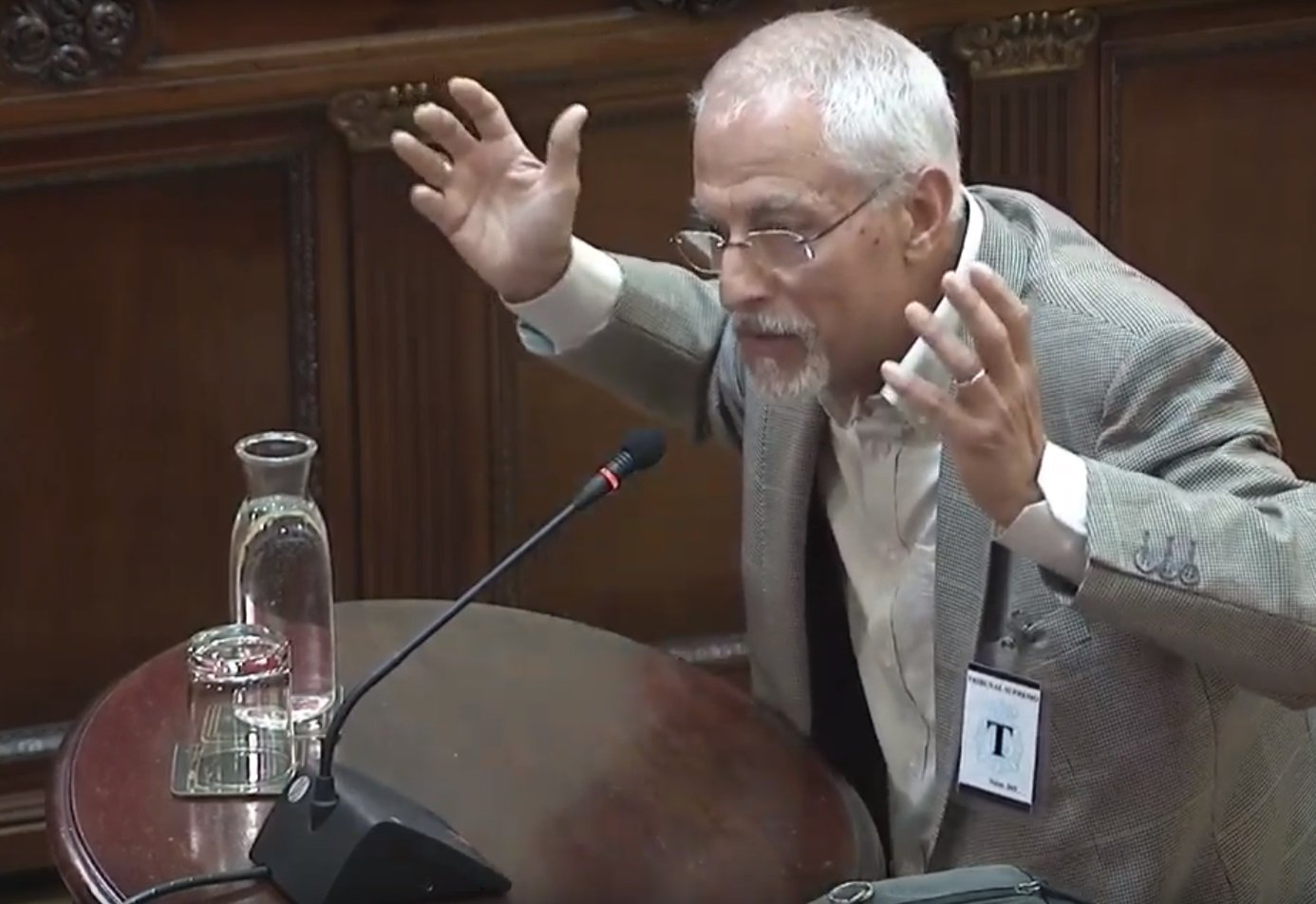The Catalan independence trial has begun to hear a radically different version of how the 1st October 2017 referendum was experienced. After an exceptionally long procession of Civil Guards and Spanish National Police officers through the Supreme Court in Madrid, the turn of the Catalan voters has now arrived. This Tuesday, the court heard the first testimonies from people who were at polling stations that day and were injured by the police, along with several mayors of municipalities affected by police violence.
All the witnesses who appeared today coincided in saying they had arrived at their voting stations first thing in the morning because it was a very important day for people, a day of hope. All admitted that they were surprised by the police attacks. "There were people crying uncontrolledly. Many people were afraid. You could hear people at the back calling out for their relatives," explained Joan Pau Salvador, who was at the Sant Carles de la Ràpita school in the south of Catalonia: "People asked them not to hit us."
"We spontaneously started singing the Catalan national anthem while the police moved into formation. They entered up the ramp and at that moment, out of fear I suppose, everyone went silent," explained Ferran Soler, who was at Castell de Dosrius primary school, on the Maresme coast near Barcelona.
Emili Gaya of the town of Sant Esteve Sesrovires described how, despite having been present in many demonstrations, even during the Franco dictatorship, "I had never seen a police formation of those characteristics." "We were taken aback," he admitted.
All of them related how the police carried out baton charges, spoke of the blows they received and the scenes that unfolded before them. "I remember exactly the sound that was made by a truncheon opening a person's head," one of the witnesses explained. Among the public in the courtroom, who were mostly there to give support to those giving testimony, there were some who weren't able to contain their tears.
 Andreu Van der Eynde / Efe
Andreu Van der Eynde / Efe
While questioning the last witness, lawyer Andreu Van der Eynde fell silent at one point and presiding judge Manuel Marchena asked him if he had more questions. "I'm thinking," the lawyer replied. The judge answered with an ironic smile that his questions should have been "thought about already at home". "I want to regain my composure in order to conduct the defence," Van der Eynde answered. "Well then, regain your composure and ask the questions," Marchena retorted.
However, the judicial dressing-down of the day was, once again, awarded to the state solicitor, Rosa María Seoane, while she was asking witness Albert Salvadó about the door which police had used to enter the polling station. The judge began to fidget, rubbing his forehead and his eyes until finally, he dropped his finger onto the microphone. "Let's try and focus on aspects of judicial relevance. We can't waste any more time finding out which door was open or closed," he warned, adding that the long list of witnesses scheduled for the day made it necessary to move forward.
 Rosa María Seoane / Efe
Rosa María Seoane / Efe
"The questions are asked with the best intentions", the state solicitor explained apologetically. "Undoubtedly," replied Marchena. But Seoane ended her interrogation at that point with the usual "In that case, there are no further questions" which she uses in these cases.
This was all before the 12 noon recess. When the session resumed half an hour later, Seoane was not in her place. The other state solicitor, Elena Sáenz, took over the questioning.

